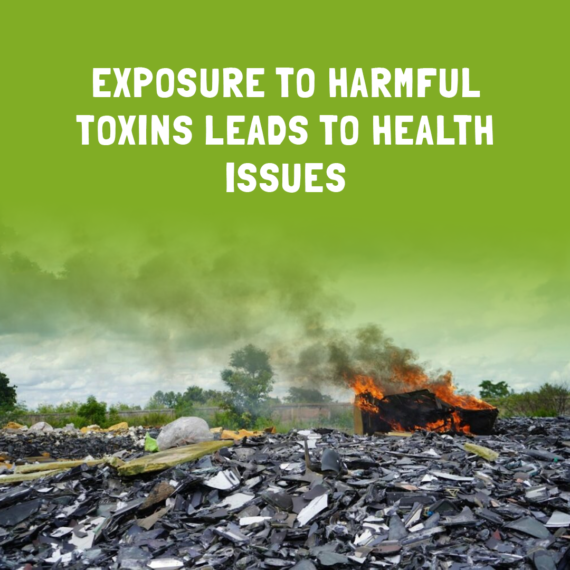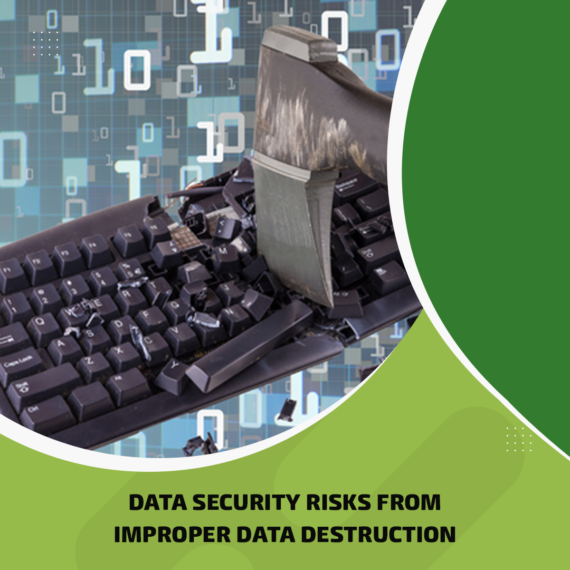
What Are the Risks of DIY E-Waste Recycling?
Are you thinking about recycling your old electronic devices yourself? Do you think it’s a good way to get rid of unwanted gadgets, help the environment, and learn new skills? It sounds good in theory—organizing your home while supporting sustainability efforts. However, DIY e-waste recycling is actually more difficult and dangerous than it seems. Without the right knowledge and tools, you could harm your health, risk the environment, and break laws. Let’s explore the risks and see why leaving e-waste recycling to professionals is best.
Key Risks Of DIY E-waste Recycling-

Exposure to Harmful Toxins Leads To Health Issues
Did you know many electronic devices contain hazardous materials such as lead, mercury, and cadmium? These substances can be highly dangerous to your health if not handled properly. When you try dismantling these devices without proper knowledge or protective gear, you risk exposing yourself to these toxins. This can lead to severe health issues, including respiratory issues, skin conditions, and even long-term diseases like cancer.
Risk of Physical Injuries
Think about the tools you need to disassemble a computer or smartphone: screwdrivers, pliers, and possibly even more advanced equipment. You could get cuts, burns, or other injuries if you don’t have the right training. Sharp edges and small components can easily cause accidents, and inhaling dust from the disassembly process can irritate your respiratory system. Therefore, DIY e-waste recycling is risky.
Pollution from Improper Disposal of Hazardous Materials
Recycling e-waste isn’t just about breaking down devices; it’s also about ensuring that the materials are disposed of in an environmentally friendly way. Without proper knowledge, you might throw hazardous components into your regular trash, which can lead to soil and water contamination. For example, mercury can leach into the soil and groundwater, contaminating water supplies and entering the food chain. Lead can also contaminate soil and water, posing risks to plants, animals, and humans. It only harms wildlife and impacts human communities nearby. The environmental impact can be long-lasting, which can impact ecosystems and biodiversity adversely.
Resource Inefficiency from Ineffective Recycling Methods
Professional recycling facilities have the technology to extract valuable materials from e-waste efficiently. You likely don’t have access to these specialized methods as an individual. As a result, valuable resources might go to waste, and more raw materials will need to be mined, which has its own environmental impact. For instance, metals like gold, silver, and palladium are used in electronic devices, and recovering these materials requires specialized equipment and processes. Inefficient recycling means these valuable resources are lost, contributing to the depletion of natural resources. Additionally, improper DIY e-waste recycling can result in the release of toxic substances into the environment.
Legal Issues from Violation of E-Waste Disposal Regulations
In many places, strict regulations govern the disposal and recycling of e-waste. These laws are in place to protect both the environment and public health. You might unknowingly break these laws by attempting to DIY e-waste recycling, leading to fines or other legal consequences. Different states have varying e-waste laws in the United States, with some imposing heavy fines for improper disposal. Failure to comply with these regulations can expose you to significant financial penalties and legal issues.
Data Security Risks from Improper Data Destruction

Another critical risk of DIY e-waste recycling is data security. Many electronic gadgets, such as laptops, tablets, and smartphones, store personal and sensitive information. If these devices are not properly wiped before recycling, your data can be accessed and misused. Professional recyclers ensure that all data is securely destroyed, but if you’re doing it yourself, there’s a higher chance of data breaches, which can lead to identity theft or other security issues. For example, smartphones often contain sensitive information such as passwords, personal identification numbers, financial records, and private communications. Even if you think you have deleted all the data, it can often be recovered with the right tools. It makes proper data destruction crucial before disposing of electronic devices.
Expertise Limitations and Lack of Specialized Knowledge
Even with the best intentions, the average person lacks the specialized knowledge required to recycle e-waste effectively. Professionals are trained to handle toxic materials safely and efficiently, ensuring that as much material as possible is recovered and reused. For example, certain components need to be separated and processed in specific ways to avoid contamination and maximize material recovery. Without this expertise, you might miss out on recovering valuable materials and cause environmental harm. Additionally, professional recyclers follow strict safety protocols to protect themselves and the environment, something DIY recyclers might not be aware of.
Leave E-Waste Recycling to Professionals Like REECOLLABB
While DIY e-waste recycling may seem like a good idea initially, it is more risky than beneficial. It can harm your health, negatively affect the environment, and create potential legal problems. Therefore, Choosing a professional e-waste recycling service like REECOLLABB is better than attempting it yourself. This way, you can protect yourself and the environment and help create a more sustainable future.
If you have old electronics to dispose of, look for local e-waste recycling centers or services that can handle the job safely and efficiently. Remember, sometimes it’s best to leave it to the experts!
Read Our More Blogs:
How Our E-Waste Collection Services Simplify Disposal for Businesses?
Benefits of Implementing a Zero E-Waste Policy in Your Business
Follow us:







